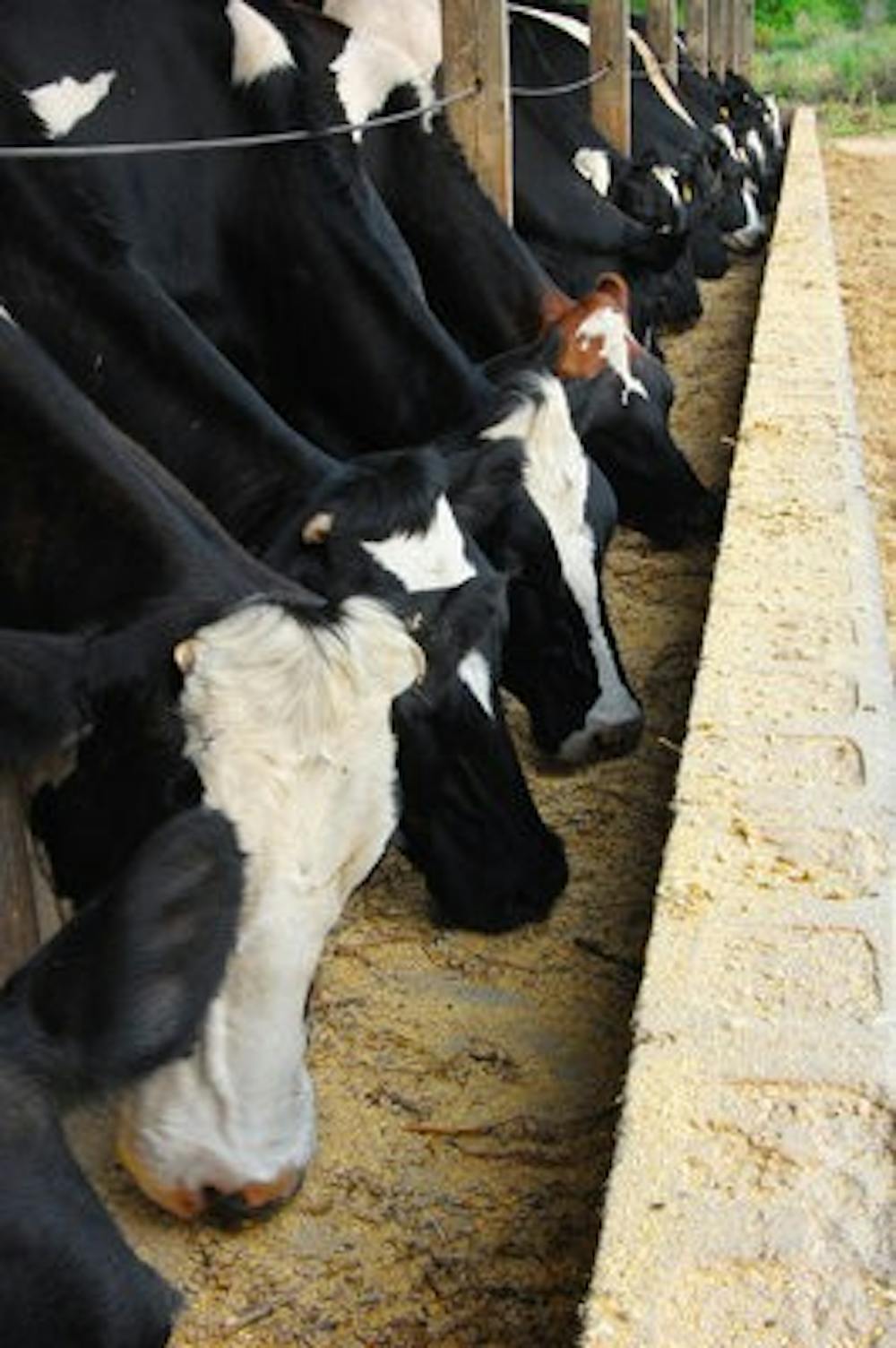Eat less meat; save the planet.
This is part of the mentality of supporters of the Meatless Monday campaign.
According to meatlessmonday.com, eating less meat is not only good for a diet, but beneficial for the environment.
The Meatless Monday campaign seeks to reduce meat consumption by 15 percent by motivating people to abstain from eating meat every Monday.
"There may be other compelling reasons for advancing a vegetarian agenda, but I simply don't think that you can rest your argument on the prospects of a measurable decrease in the output of anthropogenic emissions," said Russ Muntifering, a ruminant nutrition professor in the department of Animal Sciences.
The campaign has also gotten commitments from school systems and universities to serve vegetarian meals to students on
Mondays. The Web site said the meat industry generates nearly 20 percent of the man-made greenhouse gas emissions, which is more than the transportation industry.
The amount of water used to raise livestock is also addressed by the campaign.
According to the Web site, "An estimated 1,800 to 2,500 gallons of water go into a single pound of beef."
Meatless Monday also claims moderating meat consumption helps reduce fossil fuel demand.
Muntifering said there are more factors involved with climate change than the methane cows produce.
Muntifering said rather than 20 percent, only about five to 10 percent of the greenhouse gas makeup is methane, which is what cows' waste emits into the atmosphere.
Cows are not the only source of methane, Muntifering said. Wetlands, bogs and landfills also emit methane.
Muntifering said he would question the effectiveness of a single day without meat in reducing greenhouse gas emissions and water consumption.
Muntifering said livestock affects the environment in a positive way.
"There are very many positive effects of cattle grazing that are overlooked, especially in grass-based beef cattle production," Muntifering said.
Muntifering said grass-based beef cattle production causes frequent defoliation of vegetation and stimulation of rapid re-growth, which can be significant in reducing harmful atmospheric carbon dioxide.
Christi Talbert, senior in nutrition and intern with the sustainability department, said greenhouse gas emissions are only a small portion of why mass meat production is bad for the environment.
The way livestock is raised is the main reason students should decrease their meat production, Talbert said.
Talbert said a large number of livestock are raised in small area that doesn't get cleaned, so the animals live knee-deep in their own waste.
"That manure that could be used as fertilizer is just making the animals sick," Talbert said. Talbert said students don't have to cut meat out of their diets all together to make a positive impact.
Eating sustainable, humanely raised meat, such as the grass-based beef from the Auburn meats lab, is better for the environment and for a diet, Talbert said.
Victoria Lisle, Ph.D. student in English, has been a vegetarian for three years.
The industrialization of the meat industry is one of the reasons Lisle stopped eating meat. One American eats about 200 pounds of meat per year, and an extremely high amount of resources goes into meeting this high demand, Lisle said.
"Most people who go vegetarian start from a love of animals," Lisle said. "But the more you look into it, the more you see that there's a lot that's wrong with the industrialization process."
Do you like this story? The Plainsman doesn't accept money from tuition or student fees, and we don't charge a subscription fee. But you can donate to support The Plainsman.




